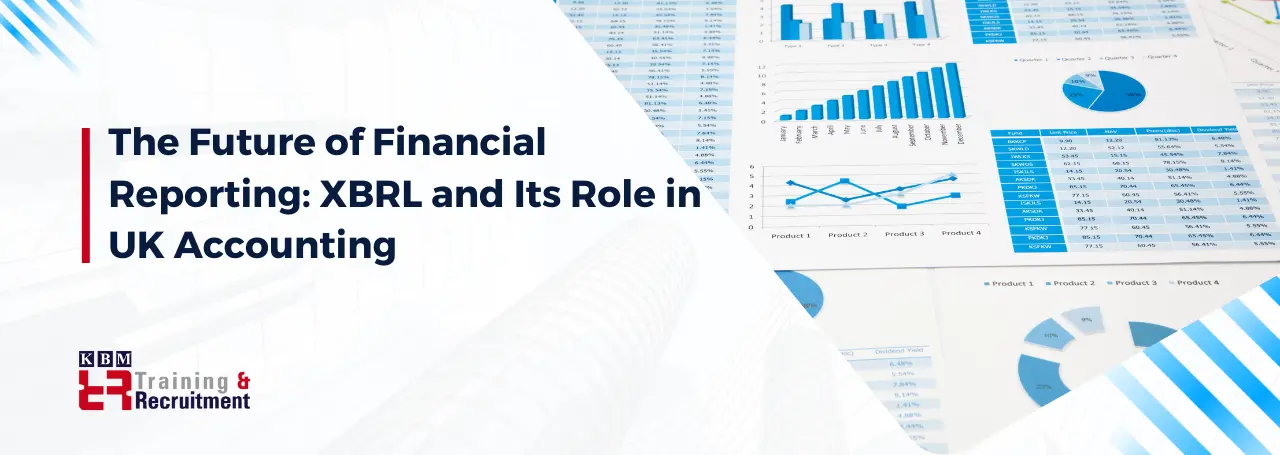The landscape of financial reporting is transforming, and at the heart of this change lies eXtensible Business Reporting Language (XBRL). In the United Kingdom, as well as on a global scale, XBRL is revolutionising how financial information is prepared, presented, and analysed.
In this blog, we will explore the future of financial reporting in the UK and the pivotal role played by XBRL in reshaping accounting practices, enhancing transparency, and streamlining regulatory compliance.
The Evolution of XBRL
XBRL, initially developed in the late 1990s, is a global standard for tagging and exchanging financial and business information electronically. Its adoption has grown exponentially, transforming the way financial data is reported. In the UK, regulatory bodies such as HM Revenue and Customs (HMRC) and Companies House have embraced XBRL to improve data accuracy and streamline reporting processes.
Enhanced Data Accuracy
One of the key advantages of XBRL in UK accounting is the enhanced data accuracy it provides. With XBRL, financial data is tagged with a standardised taxonomy, reducing the risk of manual errors and ensuring consistency in reporting. This increased accuracy benefits businesses, regulators, and investors by providing reliable financial information for decision-making.
Streamlined Regulatory Compliance
XBRL simplifies the process of regulatory compliance in the UK. Reporting entities can use XBRL taxonomies specified by regulators like HMRC and Companies House, making it easier to meet their requirements. This streamlining of compliance efforts saves time and resources for businesses while also ensuring data consistency across the board.
Facilitating Financial Transparency
XBRL contributes significantly to financial transparency in the UK. Providing a structured, machine-readable format for financial data allows for easier analysis and comparison of financial statements. This transparency benefits investors, analysts, and stakeholders by providing access to comprehensive and understandable financial information.
The Role of XBRL in Digital Transformation
XBRL is a linchpin in the digital transformation of UK accounting. It enables businesses to shift from traditional paper-based reporting to fully digital processes, aligning with initiatives like Making Tax Digital (MTD). This transition to digital reporting not only streamlines operations but also positions UK businesses for future technological advancements in accounting.
Redefining Financial Analysis
The adoption of XBRL in UK accounting redefines financial analysis. Analysts can automate data extraction, conduct more in-depth analyses, and generate valuable insights faster. This not only improves decision-making but also enhances the ability to identify financial trends and anomalies.
Challenges and Adoption Hurdles
While the benefits of XBRL in UK accounting are substantial, there are challenges and adoption hurdles to overcome. Businesses may need to invest in training and technology to implement XBRL effectively. Ensuring data security and compliance with evolving regulatory requirements remains a priority.
Standardisation of Reporting Practices
XBRL's role in standardising reporting practices is pivotal. Using a common taxonomy fosters consistency in reporting across different sectors and industries. This, in turn, facilitates benchmarking and analysis, making it easier to analyse the financial health of organisations in the UK.
Enhanced Investor Confidence
Investors in the UK benefit from XBRL's role in financial reporting by gaining access to more transparent and comparable data. This enhanced data quality and accessibility boost investor confidence, potentially leading to increased investment and capital flow into the UK business landscape.
International Adoption and Collaboration
XBRL's impact on UK accounting is part of a broader international trend. The collaboration and alignment of XBRL standards across countries allow for cross-border analysis and investment. Understanding how XBRL fits into this global landscape is crucial for UK businesses and accountants.
Conclusion
XBRL is at the forefront of reshaping financial reporting in the UK. Its role in enhancing data accuracy, streamlining regulatory compliance, facilitating financial transparency, and driving digital transformation cannot be overstated. As businesses and regulatory bodies in the UK increasingly embrace XBRL, the future of financial reporting is poised for greater efficiency, transparency, and adaptability to the evolving digital landscape.
In the era of XBRL, the accuracy and accessibility of financial information will be paramount, supporting better decision-making, investment, and analysis. By understanding and harnessing the potential of XBRL, the UK accounting community is paving the way for a future of financial reporting excellence.






















